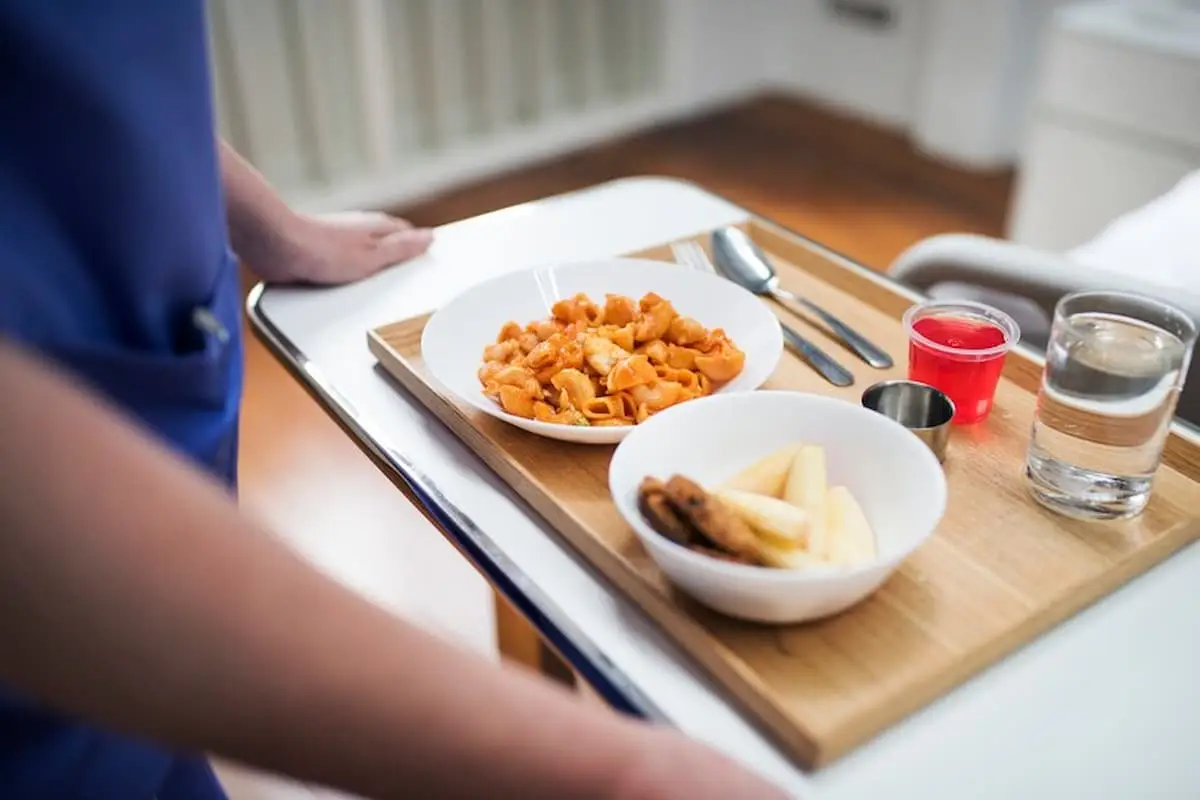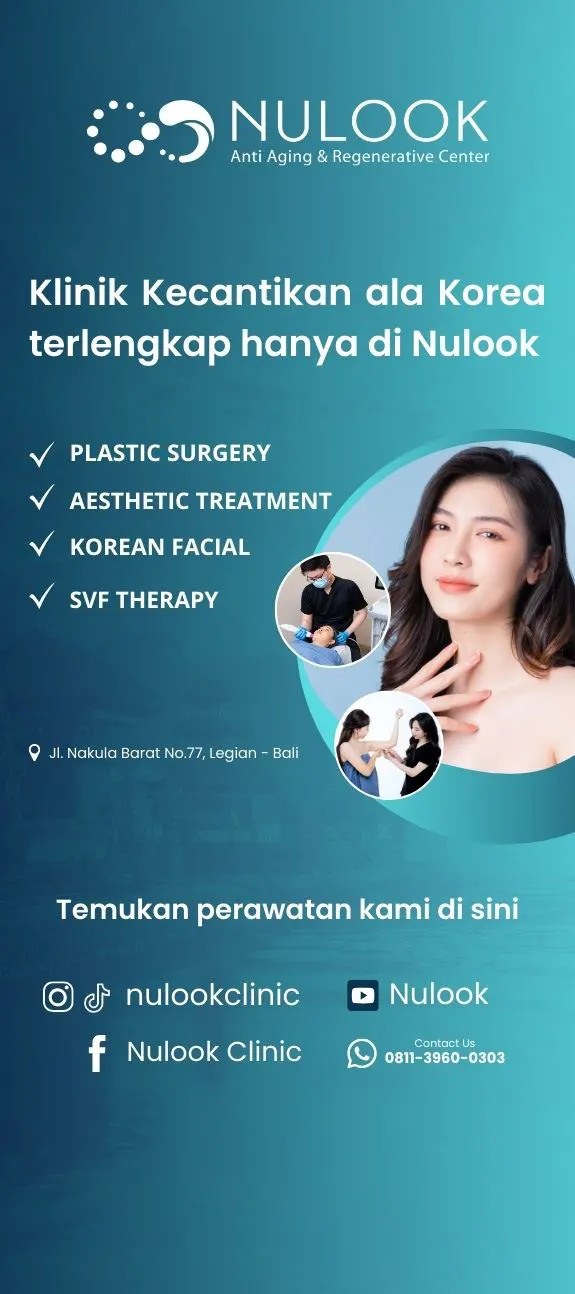Fasting Before Plastic Surgery: Procedures and Benefits
Author: Nulook ExpertiseReview by: -Are you considering undergoing plastic surgery? If so, there are several important preparations you need to know, one of which is fasting before the surgery. You might have heard this from your doctor, but what is the reason behind this recommendation?
Don't worry, in this article, Nulook will thoroughly discuss fasting before plastic surgery. From the reasons for its importance, the benefits you can gain, to the procedures and recommended fasting durations. Let's dive into the complete explanation!
Why Should You Fast Before Plastic Surgery?
Fasting before plastic surgery is not just a rule without reason, Beauties. It is an important step taken for the safety and success of the surgery. Here are some reasons why fasting is necessary before plastic surgery.
1. Preventing Pulmonary Aspiration
Aspiration is a condition where food or liquids from the stomach enter the lungs during surgery. This can happen because anesthesia makes you lose your cough reflex. By fasting, your stomach is empty, thus minimizing the risk of aspiration.
2. Reducing the Risk of Nausea and Vomiting
Anesthesia can cause nausea and vomiting. If your stomach is empty, this risk will be lower. Imagine if your stomach is full during surgery, the likelihood of vomiting and other complications increases.
3. Ensuring Safe Use of Anesthesia
The use of anesthesia requires an empty stomach and digestive tract to work effectively and safely. By fasting, the anesthesiologist can better control and adjust the dosage, ensuring the surgery goes smoothly.
Benefits of Fasting Before Plastic Surgery
In addition to the medical reasons mentioned above, fasting before plastic surgery also offers several other benefits that can help your surgery and recovery process, including:
1. Reducing the Risk of Surgical Complications
By fasting, your body is in a better condition to undergo surgical procedures. This helps reduce the risk of complications that could arise during or after the surgery.
2. Improving Recovery Quality
With an empty stomach, your body can focus on the post-operative healing process, not on digesting food. The result? The surgery goes smoothly without hindrance, and the recovery process becomes faster and more optimal.
3. Ensuring Post-Surgery Comfort
After surgery, you may feel uncomfortable if your stomach is full. By fasting, you can avoid this discomfort and focus on the recovery process to achieve optimal surgical results.
Consequences of Eating Before Plastic Surgery
Although it may seem trivial, eating or drinking before plastic surgery can cause unwanted effects. Here are some of the issues that can arise if you ignore fasting before plastic surgery:
1. Increased Risk of Aspiration
As mentioned earlier, aspiration can occur if your stomach is not empty. Food or liquids entering the lungs can cause aspiration pneumonia or inflammation of one of the air sacs in the lungs. If this happens, the patient will require serious medical care.
2. Anesthesia Complications
Anesthesia cannot work effectively if your stomach is full. This can cause complications during surgery, including difficulty adjusting the dosage and a higher risk of adverse reactions to anesthesia.
3. Increased Risk of Infection
Food left in the stomach can become a source of bacteria, increasing the risk of infection during and after surgery. This can interfere with the healing process and require a longer recovery time.
Procedures and Duration of Fasting Before Plastic Surgery
After understanding the importance of fasting before plastic surgery, how long should patients fast, and what should be avoided? Here is the guideline:
1. Solid Food Fasting
Typically, doctors will ask you to avoid consuming solid foods for 8 hours before surgery. This includes all types of foods that take a long time to digest, such as rice, noodles, meat, bread, and other heavy foods.
2. Liquid Fasting
For liquids, you may be allowed to drink water up to 2 hours before surgery. However, all other types of beverages such as juice, coffee, or tea should usually be avoided starting 6 hours before surgery.
3. No Smoking
In addition to food and beverages, smoking should also be avoided at least 24 hours before surgery. Nicotine in cigarettes can constrict blood vessels, disrupt blood flow, and hinder wound healing. So, for smooth surgery and optimal recovery, it is best to avoid smoking during the recommended period.
4. Consult with Your Doctor
Always follow the instructions of your surgeon and medical team carefully. They will provide specific guidelines regarding the procedures and duration of fasting according to the type of plastic surgery you will undergo, considering your overall health condition.
Fasting before plastic surgery is an important step you should not ignore, Beauties. It's not just about following the rules, but also about ensuring the safety and success of the surgery you will undergo. By understanding the benefits, reasons, and consequences of fasting, you can prepare yourself better and undergo the surgical procedure with more peace of mind.
This thorough preparation will help you achieve optimal surgical results, especially if you choose procedures like Fat Filler Bali from Nulook to achieve your dream body shape. Not only can it reduce fat in certain body areas, but the fat can also be processed as a natural filler to add volume to desired areas. We are committed to providing safe and effective plastic surgery procedures to deliver the best results.
So, don't hesitate to contact the Nulook team now for further consultation on preparing for plastic surgery. Stay beautiful and healthy, Beauties!
References:
https://ariamedtour.com/blogs/fasting-before-surgery/
https://www.verywellhealth.com/why-cant-i-eat-or-drink-before-surgery-3157000


